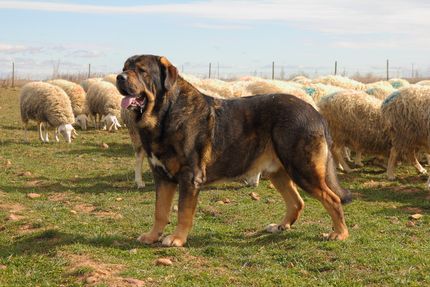Spirulina for the dog - How healthy is it really?
In recent years, "superfoods" have become increasingly popular as a supplement to everyday nutrition. Therefore, it is not surprising that the trend has now also arrived in pet food. Spirulina is one such superfood that has recently become extremely popular, especially among dog owners. The nutritional profile of the supplement promises to provide your dog with necessary minerals and vitamins, which should keep him healthy and fit.
What is Spirulina?
Spirulina is a genus of cyanobacteria that comprises 35 subspecies and has been native to the earth for three billion years. Spirulina, which used to be wrongly called "blue-green algae", is mainly cultivated in specialized water farms. Today, the cyanobacteria are used in alternative medicine as well as in food supplements for humans and dogs.
Advantages and disadvantages of Spirulina for dogs
The small miracle bacteria has many advantages and provides the dog with many important nutrients. Nevertheless, as is so often the case: no effect without side effects! However, in the case of spirulina, these are manageable and quite well researched, as spirulina as a dietary supplement is not a new trend, but has been used for centuries.
Benefits:
- Spirulina provides significantly more iron than meat
- Enzymes and antioxidants prevent diseases
- Contained linolenic acid has an anti-inflammatory effect
- High content of vitamin A and vitamin B12
- Spirulina contains numerous important minerals
Disadvantages:
- In rare cases, intolerances may be present
- Nausea, diarrhea and fatigue are then the result
- Not all dogs like spirulina

Vitamins, minerals and trace elements
The ingredients of Spirulina convince not only dog owners, but also scientists. This explains why the World Health Organization named spirulina the "best food of the future" in 1974. Especially vitamin A and vitamin B12 can be found in the cyanobacteria, which are positive for vision and the immune system.
But also high amounts of necessary minerals like barium, boron, iodine and chromium are contained in spirulina. For your dog, however, the impressive iron content is especially worth mentioning. At 28.35 mg per 100 grams, this is a good 24 times higher than in most types of meat.
Application and dosage forms of Spirulina
The fishy taste of spirulina is not to everyone's taste. It is therefore advisable to mix the food supplement into the food. If your dog vehemently refuses to take it, you should accept this and not force him to take it. Spirulina is also available in capsule or powder form, whereby the latter is much easier to mix into the food.
Where spirulina is on it, not only spirulina must be in it
The hype surrounding spirulina has unfortunately led to some black sheep appearing on the market and not selling what they promise. The special thing about superfoods is that they are usually sold in pure form and do not contain any other additives. However, some sellers are marketing spirulina with added algae and bacteria. Although the prices of these products are significantly lower, they also contain less cyanobacteria. Therefore, you should be careful which spirulina products you serve your dog and pay attention to the ingredients.
































